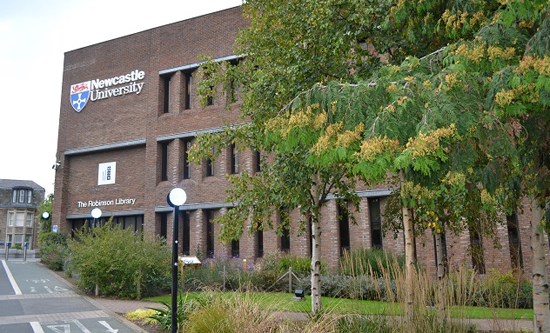
‘The UK student accommodation market is a rapidly expanding and increasingly lucrative field of investment. Growing faster than any other asset class since 2011, the number of UK students is predicted to grow at a rate of 15-20% over the next five years, increasing demand and making student accommodation the top-performing property investment field in the UK.’ (Select Portfolio investment newsletter, November 2015)
Investment in student housing reached a five-year high last year. According to the estate agent Savills, £5.8bn was pumped into the market in 2015. Newcastle is no exception to this growing trend, as investors rub their hands over the easy profits to be made from student accommodation. Government figures obtained by the local newspaper reveal that Newcastle has one of the highest proportions of student homes in England: ‘figures from The Department for Communities and Local Government show that the city had 7,578 homes exempt from council tax due to occupation by students. This represents 6% of the housing stock; one in 17 homes.’ (The Chronicle 19 Jan 2016)
Current schemes in Newcastle have created 11,000 student rooms since 2008. In contrast, in 2009 the council announced plans to build a mere 1,650 new council homes over a ten-year period and is currently missing this target by 38.3%. Addressing the lack of decent social housing is not an attractive investment prospect compared to the lucrative student accommodation market. The needs of communities are being overlooked whilst huge investment projects are swamping the city centre. Meanwhile, Newcastle Labour council has just unanimously voted through another £32m worth of cuts to services, bringing the total to £222m over the last five years.
Newcastle University is currently ploughing £200m into redevelopment of its campus and services, £100m of it borrowed from the European Investment Bank (EIB). This is the largest amount ever loaned to a British university by the EIB, as part of a larger investment loan to the North East and Yorkshire.
It is boom time for student numbers: The Chronicle reports that Newcastle University now takes in 70% more students than it did in 2000, with more than 21,000 full-time students. Another local university, Northumbria University, seen its studentbody increaseby 114% since 2000, with more than 27,800 full-time students. Those figures increase every academic year.
With council approval, Newcastle University is set to spend £75.5m on redeveloping student accommodation blocks on its Richardson Road site this year which will total 1,279 student beds (an increase of 351). An additional nine other projects by separate developers since 2014 have involved investment in excess of £200m for just ten developments. A Chronicle article reports that the council’s planning committee has granted permission for more than 45 new student accommodation blocks and conversions since 2008, including 16 in the last five years. But the beneficiaries of all this spending are in reality only the more affluent students, particularly overseas students at whom so much of this ‘luxury’ accommodation is targeted. There is much less interest in providing affordable options for poorer students. A recent NUS-Unipol survey shows the average weekly rent for student accommodation in the UK now stands at £147, an 18% increase since 2012-13. Since 2006, the private sector has gone from providing 18% of bed spaces to 41%. ‘The private operators produce a lovely product, high-spec rooms and gyms and and so on, but it all comes with a price tag,’ Victoria Loverseed, Unipol’s student engagement manager told The Guardian (29 March 2016). ‘Universities are now aping the private sector by building this top-end stuff, so a lot of students feel priced out.’
Students from poorer backgrounds are increasingly being forced out of the city centre. Meanwhile the developers and the local council are carving up the city with land originally earmarked for social or affordable housing handed over to developers to build luxury student complexes.
Anna Smith and Cal Shaw




